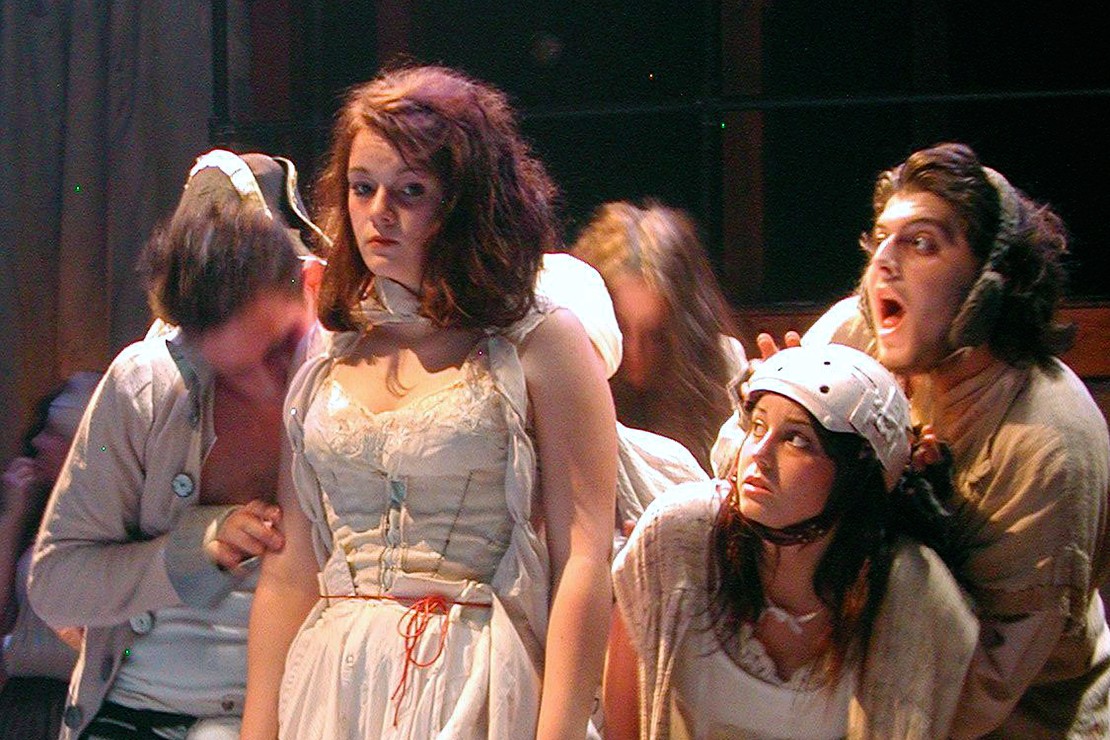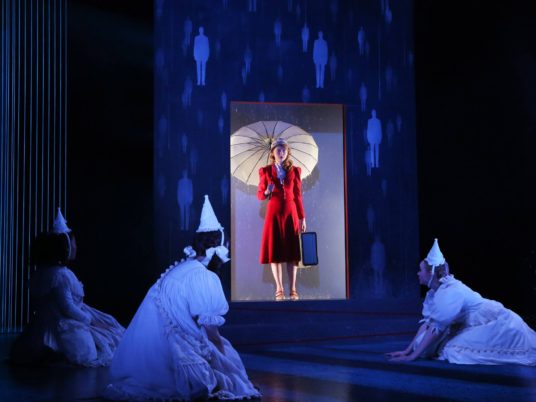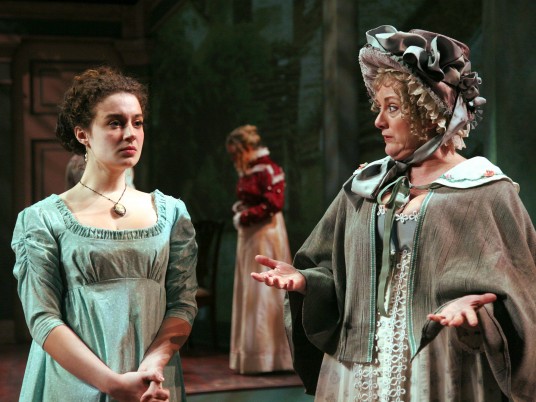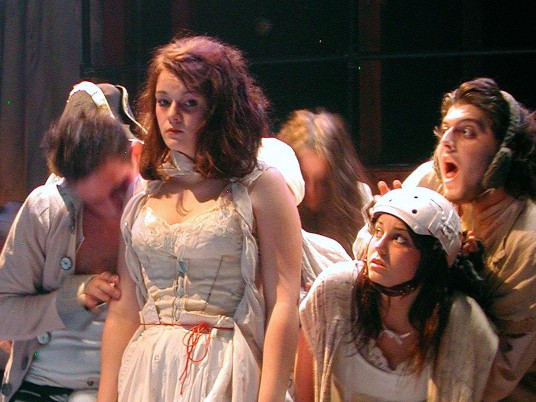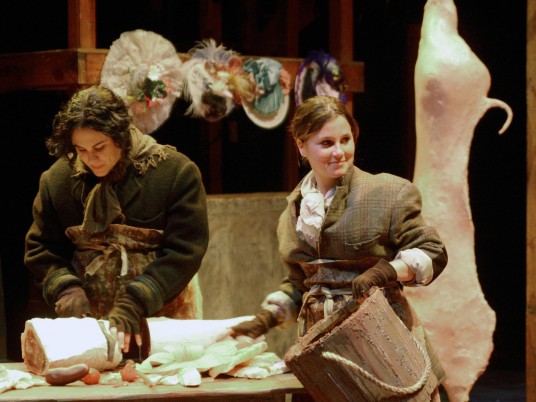Marat Sade
This production is more than a history lesson. It is an expression of the sociopolitical climate of the 1960’s. It is a debate between the violent, collectivist ideals of Marat and the violent, individualism of Sade. It is a multilayered, poetic redefining of Brechtian theater, building on the popular “happenings” of the Sixties. And as the war in Iraq drags into its third year, the play’s antiestablishment, anti-war message seems just as relevant today. —Helene Kvale
Scenic & Lighting Designer, Mike Billings
Costume Designer, Kevin Thacker
Sound Designer, Wilson Tennerman
Mobius Theater, University of Connecticut
The Marquis de Sade spent 27 years in prison for various acts of “extravagant debauchery” between 1763 and his death in 1814. During his incarceration at Vincennes, the Bastille and eventually Charenton Asylum for the Insane, he found solace in his writing and philosophizing, outlining his vision of extreme singularity in such works as Justine, Juliette and 120 Days of Sodom. By the time he reached Charenton, Sade was a celebrity, both reviled and admired.
The Director of Charenton, Coulmier, was excited by the infamous resident. He gave him extraordinary privileges: an apartment overlooking the gardens, visiting rights with his mistress, pen and ink. As a form of therapy, he encouraged Sade to write and direct plays, using the patients as actors. Eventually Coulmier built a theater for Sade, inviting a paying audience to what would become the hottest ticket in Paris.
Here begins Peter Weiss’ play The Persecution and Assassination of Jean-Paul Marat as Performed by the Inmates of the Asylum of Charenton Under the Direction of the Marquis de Sade. Set in 1808 under Napoleon, the French Revolution was still fresh in the minds of the people. The murder of Marat in his bath by Girondist Charlotte Corday had occurred only fifteen years earlier. It certainly could have been the subject of one of Sade’s plays, since the event shocked France, canonized Marat and fuelled theatrical reconstructions all over the country. —Helene Kvale, Director
